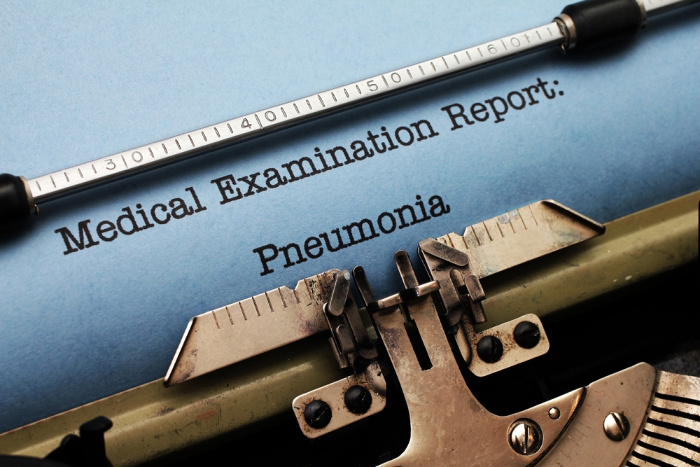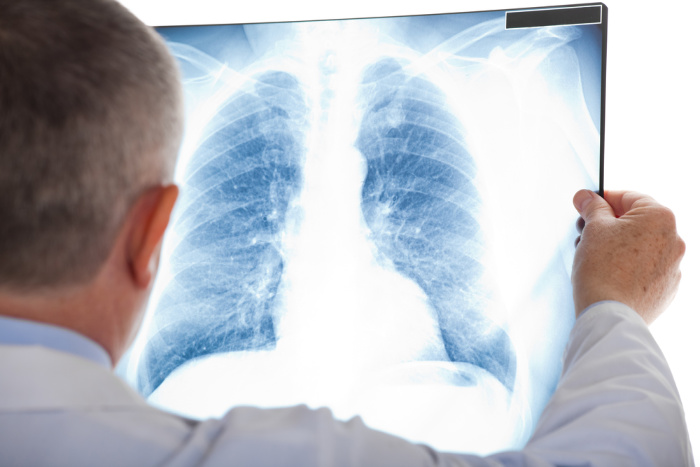
One of the reasons I am writing about pneumonia is because we are seeing that people who have tested positive for coronavirus have complications due to pneumonia. So, what is it, how do we get it, and how do we know if we just have pneumonia or pneumonia caused by a virus such as a Coronavirus?
Please refer to the CDC for any additional information.
What is Pneumonia?

Pneumonia is a scary respiratory infection that specifically affects your lungs. As most know, your lungs are responsible for the exchange of oxygen and carbon dioxide. They consist of bronchi which divide into bronchioles that end in alveoli.
When a person has pneumonia, the alveoli in one or both of your lungs fill up with pus or fluid. When this happens, it makes it harder for your lungs to exchange oxygen and carbon dioxide.
The fluid that fills up in the alveoli is caused by bacteria, viruses, or fungi. Your lungs react to these foreign microbes and cause an inflammatory response. This inflammatory response causes the fluid to fill the lungs.
Types of Pneumonia\ Causes
We tend to think of pneumonia as bacterial, but there are actually different types of pneumonia that you can get.
Bacterial Pneumonia
Bacterial pneumonia is caused by, you guessed it, bacteria. The bacteria masses and multiplies in the lungs. When this happens, the alveoli then become inflamed and that is when they fill with pus or fluid.
Some bacteria that cause bacterial pneumonia include:
- Streptococcus
- Staphylococcus aureus
- Haemophilus Influenzae
- Legionella
- MRSA
- Mycoplasma
- Chlamydophila
Pneumonia that is caused by Legionella, Mycoplasma, and Chlamydophila causes atypical pneumonia and do not respond to normal antibiotics. Additionally, Mycoplasma is also what causes what we know as “walking pneumonia.”
Viral Pneumonia
Half of all cases of pneumonia are caused by viruses. The viruses invade the lungs and multiply much as a bacteria does. However, we do not have antibiotics that can kill these as we do bacteria. When the viruses multiply, it causes inflammation in the alveoli which thus causes pus and fluid.
Viruses that cause viral pneumonia include:
- Influenza A
- Influenza B
- Coronaviruses including the Novel Coronavirus
- Rhinoviruses
- Adenoviruses
- Syncytial Viruses (most common in infants and children)
Obviously, as you can tell, the coronavirus can cause pneumonia which is what can make things so scary.
Fungal Pneumonia
You can also get pneumonia from a fungus. A fungus, however, does not usually affect those with a healthy immune system. Instead, it affects those with a weakened immune system or another underlying health issue. The fungus works in the same way as bacteria or viruses do.
Pneumocystis jirovecii is the fungus that causes pneumonia. It is the only one.
The Four Stages You May Not Know
You could have pneumonia before you even realize it. This is because pneumonia has four stages: consolidation, red hepatization, grey hepatization, and resolution.
Consolidation
In the first 24-hours of pneumonia, it is called consolidation. It is typically marked by coughing and deep breathing.
Red Hepatization
After about 2 to 3 days, you reach the red hepatization stage. During this time, your lungs begin to resemble the consistency of your liver. Your capillaries (tiny blood vessels) fill with blood. At this point, the excess fluid leaks out of the capillaries.
Grey Hepatization
By day 4 to 6, you are in the grey hepatization stage. White blood cells are sent to your lungs to fight the infection. During this stage, the pressure causes compression of your capillaries. Your capillaries carry blood and oxygen all over your body. So, in essence, you begin to feel like you can’t breathe.
Resolution
At this point, the pneumonia is in its worst stage. There is so much fluid that it causes sputum.
Pneumonia Symptoms
The stage you are in will depend on what symptoms you have. However, not everyone goes through all four stages. Additionally, symptoms also depend on what type of pneumonia you have.
According to the American Lung Association, “pneumonia symptoms can vary from so mild you barely notice them to so severe that hospitalization is required. How your body responds to pneumonia depends on the type of germ causing the infection, your age, and your overall health.”
With that being said, here are some of the symptoms you may have if you have pneumonia:
- Cough: You may have greenish, yellow, or bloody mucus.
- Fever: This could include sweating, shaking, and chills.
- Shortness of breath or rapid shallow breathing: You may feel like you are struggling to breathe.
- Sharp chest pains: You could have sharp or stabbing pains that get worse the deeper you breathe or when you cough.
- Loss of appetite: You may even notice low energy and fatigue.
- Nausea or vomiting: This typically occurs in small children.
- Confusion: This typically occurs in the elderly.
How is it Diagnosed?
If you have any of the above symptoms, it is important to contact your doctor as soon as possible. If your doctor suspects that you have pneumonia, they will probably recommend some kind of diagnostic test. These tests could include:
- A blood test: This is to confirm if you have an infection or germ that is causing your symptoms.
- Chest X-ray: Most doctors will do a chest x-ray to see if there is inflammation or fluid in your lungs.
- Pulse Oximetry: When they stick that thing on your finger, they are checking to see what your oxygen levels are. It tells them if the oxygen is moving in your bloodstream normally.
- Sputum test: The doctor may request a sample of the mucus or sputum you cough up. This will help determine the source of the infection.
If you are older, a high-risk patient, or have already gone to the ER with severe symptoms, you may have additional tests done. These tests include:
- CT Scan: A CT scan allows doctors to get a better view of your lungs and look for abscesses or any other complications.
- Arterial blood gas test: This test measures the amount of oxygen that is in the blood by taking a sample from your artery. It is more accurate than pulse oximetry.
- Pleural fluid culture: This test would remove a small amount of fluid from your lungs. They would analyze it to figure out which virus, bacteria, or fungus is causing the infection.
- Bronchoscopy: This test is only used if they have diagnosed you with pneumonia but treatment is not working. IN this case, they will look into the lungs’ airways for other issues.
Pneumonia Treatment
The treatment for pneumonia will vary depending on how bad it is, as well as what caused it. Here are some ways pneumonia is treated:
- Bacterial pneumonia: This is treated with antibiotics such as penicillin.
- Viral pneumonia: Pneumonia caused by a virus must resolve on its own over time.
Additionally, doctors will typically have patients do the following when they are sick:
- Breathing treatments
- Breathing exercises
- Take cough suppressant medication
- Take fever-reducing medication
In severe cases, you may need oxygen therapy which could include a ventilator.
Final Word
Pneumonia can be mild or severe depending on who you are. Many people get it every year and could be caused by different things. If you have symptoms of pneumonia it is important to talk with your doctor.
I just recovered from double pneumonia, I rarely go to the doctor, but I was having trouble breathing. I didn’t know I had a fever when I headed to the doctor. Yep, I had a fever, they prescribed a heavy-duty medication and a very expensive inhaler. That was the first time I had ever used an inhaler. Wow, what an ordeal. The pain in my back was unreal. I’m feeling a lot better. Stay well, my friends.
What kind of pneumonia have you had in the past? Share your experiences in the comments below! Please stay home if you are sick. Drink water and of course, wash your hands. May God bless this world, Linda
35 OTC Medications You Should Store
Copyright Images: Pneumonia Depositphotos_30135963_s-2019, Pneumonia/typewriter Depositphotos_39111503_s-2019
The post Pneumonia: What You Need to Know appeared first on Food Storage Moms.
* Source


No comments:
Post a Comment